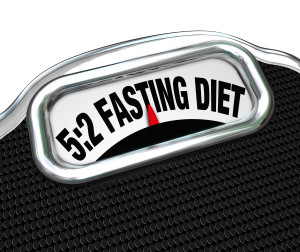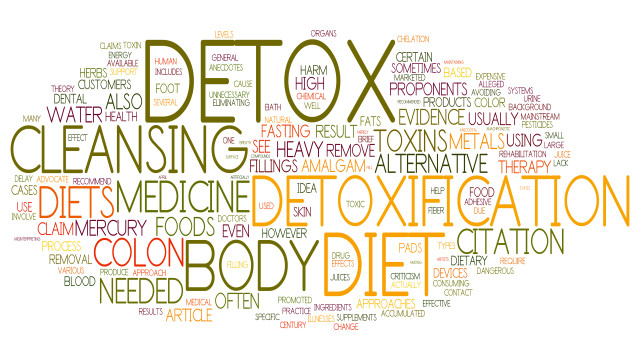Intermittent fasting: Is it good for you?
What’s all the fuss about this intermittent fasting we hear so much about these days? Is it really healthy not to eat for most part of the day, or even for several days in a row? But then, how can your body properly function? Is intermittent fasting compatible with the vegan lifestyle? Let’s take a good look at this “trendy diet” – although the expression is pretty inaccurate, given the fact that fasting is not a modern concept, nor a diet itself, but rather a way of living.
Intermittent fasting: What is it and how does it work?
Intermittent fasting, or in brief IF, is a form of dietary restriction that’s gaining more and more popularity all over the world. Theoretically, fasting means to voluntarily abstain yourself or reduce certain or all food, drink or sometimes both, for a period of time. Intermittent fasting means alternating intervals of non eating, or eating less than usual, with intervals when you are allowed to eat normally. The food you can eat and the length of the fasting depends according to which type of IF you choose to follow.
Absolute fast, or the so-called “black fast” (meaning abstinence from all food and liquid, except water, during one or several days) is common in religions such as Christianity. Although not eating anything at all for days sounds harsh and unhealthy, let’s not forget the human body has its own way of dealing with food deprivation. After all, in ancient times when food was rare, men were able to function in a permanent state of light hunger.
If you don’t want to go to extremes, there are also partially restrictive fasts, meaning you limit only particular foods or the caloric intake for one day/ several days during the week. Either you choose the absolute fast or the partially restrictive one, don’t be scared you won’t be able to make it through the day without eating. The truth is you are already fasting and not even knowing! How come? Well, if you’re sleeping late in weekends or skip breakfast and eat your first meal of the day at noon, that’s fasting. Even while you sleep, you’re fasting! If the body doesn’t get any food to process for more than 10 hours, you can call it fasting.
Recent studies have revealed the organism does not care how frequently you provide the calories and nutrients it needs, as long as it eventually receives them. You can eat seven times, three or one time during the day; if your body gets its nutrients, it can properly function.
Intermittent fasting diets
There are several options for intermittent fasting available, just choose the one that best suits your lifestyle and nutritional needs!
Daily intermittent fasting or the 16:8 method. This means you fast for 16 hours, then have an 8 hours eating period. You are free to choose when your fasting begins, the important thing is to keep it for 8 straight hours.
Alternate day fasting. Also called “every other day fasting” or “every other day feeding”, this intermittent fasting method involves a 24-hour fast followed by a 24-hour non-fasting period.
The 5:2 diet. This is commonly known as “the intermittent fasting diet” and it allows you to have 5 days of eating normally and 2 low-calorie days per week. Choose 2 non-consecutive days to limit your daily calorie intake to 500-600 calories. A variation of this intermittent fasting method is the 4:3 diet, a more extreme version for the “experienced ones” that can cope with 4 normal days and 3 fasting days.
Studies regarding intermittent fasting are still in early stages, but it seems this way of eating and living has plenty of benefits for your health and beauty. Also, specialists tend to recommend limiting caloric intake instead of not eating at all during fasting periods, as partially restrictive methods may retain most of the benefits of intermittent fasting.
Intermittent fasting: Is it good for vegans too?
Yes! Especially because veganism itself is a type of fast, since being vegan means permanently abstaining yourself from eating meat and animal products. Vegans tend to be leaner and healthier, as they are eating only fruits, veggies, whole grains, nuts and seeds, all these being foods with little calories and cholesterol. Therefore, their body can cope really well with intermittent fasting.
People who should not fast are those who eat processed and refined foods, rich in sugar and white flour. Fasting can lead to large variations of the glucose level in the blood and this can harm people with an unhealthy unbalanced diet. Intermittent fasting is often not recommended for people suffering from diabetes, hypoglycemia, gastrointestinal and eating disorders. Otherwise, vegans, fruitarians or omnivores, everybody can enjoy the benefits of intermittent fasting!
This dietary pattern is recommended for vegans especially since these days veganism is more and more popular, so a new branch of food industry is slowly developing, producing and promoting all kinds of vegan junk foods, cakes and fast food products with extra-calories. So you will definitely need to give your body a break every now and then from processing food (and processed food).
What kind on intermittent fasting diet should you try as a vegan? It really depends on your lifestyle. Look at what commitments you have, when you will be able to prepare food and how much physical work you do. You can reduce calories by avoiding aliments rich in proteins, such as beans, chickpeas, mushrooms, cereals, tofu and other soy products. Your body can survive without them, because green leafy vegetables (kale, collards, spinach, broccoli, dandelion greens, cabbage, chard etc.) can also provide the daily recommended protein intake your body needs in order to function normally.
For the daily recommended calcium and vitamin C intakes, you can also count on green leafy vegetables as well as almonds, sesame seeds and algae. Vitamin C increases the absorption of iron in the body, so you can rest assured that the veggies you eat will take care of your daily recommended iron intake. Also, make sure you eat during fasting days plenty of walnuts, flaxseeds, pumpkin seeds and canola oil, as they all are rich in essential fatty acids your body needs.
Intermittent fasting results
There are still many scientific studies to be done in order to clearly define the benefits of intermittent fasting, but there is no doubt fasting for one or two days per week helps the fat-burning process and therefore prevents neurological diseases such as Parkinson’s and Alzheimer’s.
A proven fact is also that restricting calories increase longevity and delay the aging process. And who doesn’t want to live longer, while looking young and healthy? Here are some other benefits you might enjoy if you choose to try intermittent fasting:
Promotes autophagy – when deprived of food, the body breaks down and begins to recycle old and damaged cells. The lack of this process leads to premature body aging.
It helps the body control the production of free radicals and other substances that can cause chronic diseases, even cancer.
Decreases appetite in a healthy way – once your body gets used to smaller amounts of food, you won’t feel the urge to gorge yourself and you will feel full more quickly.
It doesn’t cause muscle loss in the way traditional low calorie diets can do. Also, it’s easier to fast one or two days every week than follow a diet that lasts for a whole week or month.
In conclusion, intermittent fasting is beneficial for everyone, provided one doesn’t go to extremes. This “eating-non eating” style gives you plenty of options to adjust fastening to your lifestyle and the benefits are quite important, both physical and mental.


